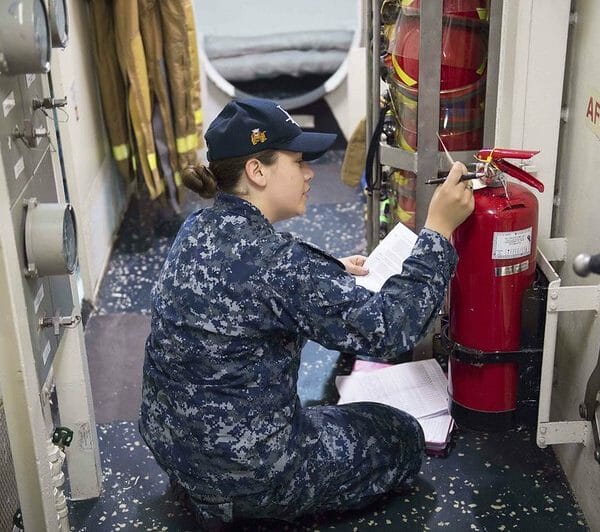
According to the second law of thermodynamics, it’s natural for everything to break down and deteriorate all by itself. Fire extinguishers are no exception to this rule. It might still look the same as the day you bought it, looks can be deceiving, and degradation is happening continuously. While the lifespan of your fire extinguisher depends on various factors, you can generally expect them to last between 5-15 years.
5-15 years may seem like a wide discrepancy, but several factors contribute to the expected lifespan of your fire extinguisher. Regular inspections and maintenance by a qualified fire extinguisher technician can take the guesswork out of your vital life safety devices. Conveniently located in Waterloo, Ontario, All Protect Systems Inc serves much of the surrounding area. Call them today to find out how they can help keep your home or business safe.
Expiration Date
A time-honored tradition for any product with a life expectancy is always to check the expiration date. Look for a paper tag attached to the handle of the extinguisher. Even if the tag doesn’t explicitly state a date of expiration, it should have some date on it. If that day was more than ten years ago, it’s probably time to replace your unit. If no tag is apparent, there might be a date code imprinted on the equipment. If the numbers don’t make sense, don’t be afraid to look up the model number on the internet and see what information is available.
Pressure Gauge
While not all fire extinguishers have gauges, most do. Look for the indicator on top of the handle. It will show you the amount of pressure left in the tank. They usually have a red (empty) and green (full) section, so as long as the pointer is in the green area, your equipment should have enough material to function correctly.
Extinguisher Damage
Hopefully, you keep your fire extinguisher in a safe environment. Unfortunately, that’s not always possible. Fires can happen anywhere, and you need to keep extinguishers near the most likely places. Such locations are often subject to physical damage or environmental corrosion of your unit.
Harmful chemicals, extreme temperatures, or other factors can cause the rubber hose or nozzle on your equipment to deteriorate and crack over time. This process occurs slowly, and you probably won’t notice it. Periodic inspections by a trained professional are invaluable in these circumstances.
Your fire extinguisher can also get knocked off its bracket by an inadvertent collision with an enthusiastic employee. Even if you try to mount your extinguishers away from high traffic areas, such accidents are common. Damage to a fire extinguisher may not be evident to the untrained eye. Locking pins go missing. Handles become wobbly or loose, and debris can clog the nozzle. It’s a good idea to assign a specific employee the responsibility of monthly or quarterly inspections of all your life safety equipment.
Different Types of Fire Extinguishers
Some types of fire extinguishers last longer than others. You shouldn’t expect pressurized water, carbon dioxide, and wet chemical extinguishers to last longer than three years. Dry chemical extinguishers, on the other hand, should last at least 12 years. The type of extinguishing agent in your equipment should be visible on your tank.
Fire Extinguishers are the type of thing we tend to ignore until our lives depend on them. Unfortunately, we need to pay attention to them before they become critical for survival. Keep complete records of your maintenance and expiration dates of all your fire extinguishing equipment, and service them when necessary. If you would prefer to delegate this responsibility to a trained professional, call the experts at All Protect Systems Inc. They offer complete solutions to all your property and life safety protection systems.
Image: Flickr